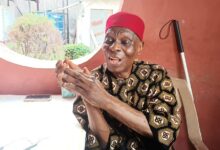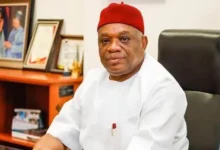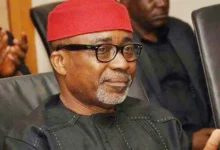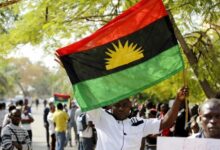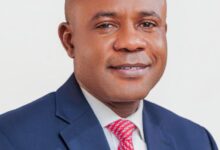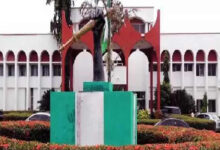
Igbos call apprenticeship ‘Igba Boi.’ It entails studying a trade or craft from a master, or ‘Oga’ in local terminology. Igbo apprenticeship had existed before the Biafra war, but it helped alleviate the Igbo people’s severe poverty.
The battle brought hunger and disease to the entire Igbo world, and people who had been wealthy before fell into poverty. Men who survived started over. The number of widows, orphans, and stranded men was astounding. A few pre-war bank account holders received twenty pounds from the Federal Government.
Thus, ‘Igba Boi’ became a key social intervention and an indigenous business start-up and incubation engine for Ndigbo to address generational poverty transfer, wealth distribution, and income redistribution. Wealth was sown where it might not otherwise be possible. Its introduction was driven by that economic reason.
As a crucial indigenous business incubation tool, ‘Igba Boi’ has garnered international interest and been evaluated by Harvard Business School, Nnamdi Azikiwe University, and the Anambra state government. Ndigbo’s business contribution.
I was honoured to lead the Governor Chukwuma Soludo Transition Committee Inclusive Growth subcommittee. The panel discussed ‘Igba Boi’ to develop an inclusive Anambra under Soludo. Two of the subcommittee’s working documents, Anambra Vision 2070 and Chukwwuma Soludo’s governorship platform, heavily mentioned it.
The Inclusive Growth subcommittee learned that company owners preferred sales ladies over apprentices (‘Umu Boi’) since many Igbo youths lack the patience to go through the five-year apprenticeship process. Most Igbo lads nowadays want fast, large money. We also noticed that many masters (‘Ndi Oga’) are unwilling to settle many trainees who completed the apprenticeship system, even after patiently serving out. Many boys leave empty-handed after being accused. The settlement date is usually over halfway when this happens.
We proposed that the Anambra State House of Assembly create legislation to govern ‘Igba Boi’ and party commitments to address the problem. Making the relationship contractual makes breaches actionable, allowing the Traders Associations, Town unions, Ndi Eze, and Anambra state government to arbitrate, intervene, and enforce.
I recall TC chairman Dr. Oby Ezekwesili’s comments on corruption and government overreliance. The former federal minister of education advised the subcommittee to prioritise self-sustaining, private sector-driven, low-government inclusive growth policies. She, along with other development experts, including yours, believe that the government should stay out of business because it has harmed the country more than helped it.
This begs the question of whether the ‘Igba Boi’ system, which began as a private sector effort and acquired popularity through time, can be enforced by legislation. Opponents of comprehensive government control argue that formalising the Igbo apprenticeship system destroys its social capital.
However, I feel ‘Igba Boi’ must be established without losing its core. It won’t affect social capital if participation is voluntary. It’s like protecting housekeepers and their bosses. It needs urgent modernization to survive. A solid company startup engine, it has created millionaire and billionaire firms. Without action, it dies in a decade and becomes a sad footnote in history.
One agrees that social capital emerges through informal actions rather than explicit enforcement. Formalisation makes them laws. Controlling the system as a formal social institution and leaving it as informal social capital can be balanced.
Properly regulating ‘Igba Boi’ will uphold the social compact and prevent apprentices from being exploited for deferred remuneration. Apprentices help their masters grow, so they deserve a prize. Master are also protected from hostile apprentices who want to reap without sowing. The ideal solution is to establish a semi-formal social institution with nominal government control and support.
I propose a parallel fund where the government and masters share startup funds. The government and masters share the task of placing a graduated apprentice.
The two should collaborate to devise a plan for Igbo young to become self-sufficient, not for the government to imprison a belligerent apprentice or ‘Oga’ for default. This rigorous strategy empowers and inspires present and future generations to pursue this respectable procedure to a meaningful existence and a wonderful future.
Many fear government involvement will ruin an effective system. However, the Igbo Apprenticeship system (‘Igba Boi’) must be saved because it is dying. youngsters-founded businesses are also supported by the government to empower youngsters. Thus, the government should include ‘Igba Boi’ in empowerment programmes.
To ensure that the institutionalisation of “Igba Boi” does not go beyond providing regulations that will deal with all parties’ contractual obligations, it must ensure compliance, avoid or reduce government contamination, provide part of the startup capital, and limit government involvement.
Both the Oga and the Boi have contributed to the slow demise of ‘Igba Boi’ in current times. Before reaching Enugu and Ebonyi, the system was most visible in Anambra. It may surprise many that Anambra’s tremendous prosperity is tied to the Igbo apprenticeship system. Most Anambra-born Igbo millionaires and billionaires were apprentices. For the reason given, young ones are less interested in it.
Along with raising initial cash for graduating apprentices, government counterpart funding would encourage Igbo youth to join the initiative and give them something to look forward to at graduation. Many state government subsidies have kept many children in school.
The gorgeous master wealth planter, ‘Igba Boi’ (Igbo apprenticeship), needs such inventive ideas to survive.
Dr. Law Mefor, a fellow of The Abuja School of Social and Political Thoughts, an Abuja-based forensic and social psychologist, can be reached at drlawmefor@gmail.com or on Twitter @Drlawsonmefor



